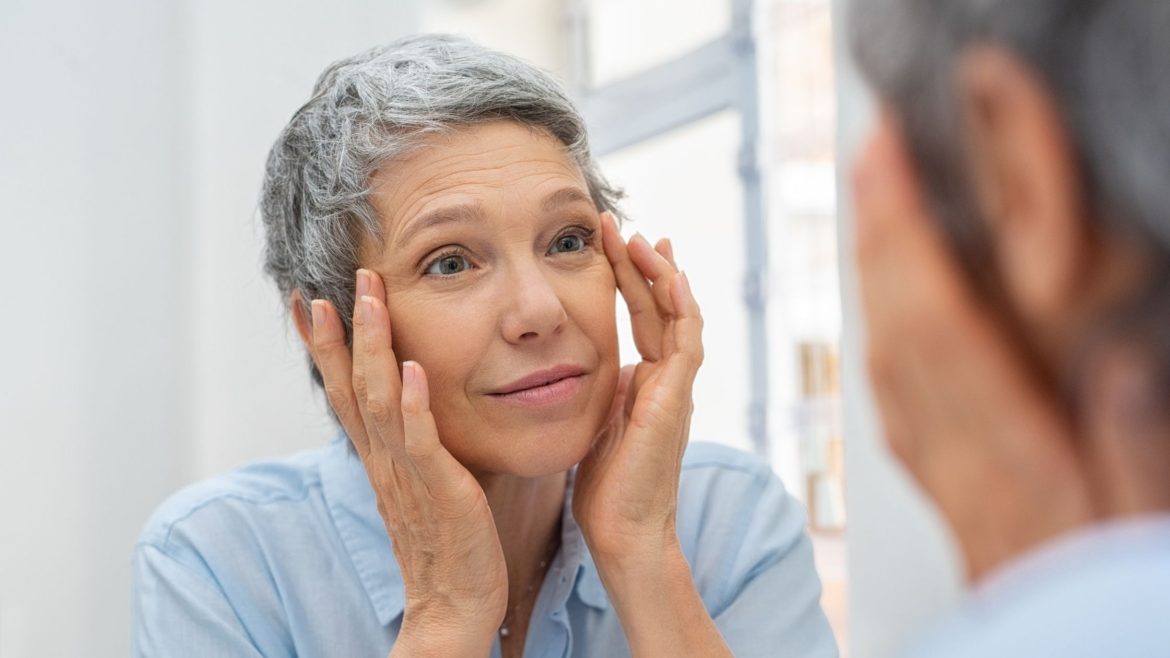
Changes Body Goes Through As We Age
When you age, your body undergoes various changes. As time passes, changes in both, structure and function, accumulate in our bodies. These changes are inevitable, but we must focus on a healthier lifestyle. This will help keep diseases and at bay, and ensure a happier life.
Even though most functions of the body remain the same, the decline in function means that older people are less able to handle various stresses, including strenuous physical activity, extreme temperature changes in the environment, and disorders. Also, some organs are more likely to malfunction under stress than others.
You may encounter various problems with age. Blurry vision and decline in hearing, frequent chronic health conditions, your immune system becomes weak, joints and muscles pain, memory loss, skin start deteriorating and changes in your mental health, etc. Mental health issues may have a deleterious impact on the elderly. For knowing more details about mental health click on this link (please provide the link). If you notice any such symptoms, consult a doctor immediately, or reach out to us.
To ensure positive health for our older readers, we have listed a few tests that are important markers for good health. For knowing more about the tests click on this link (Read here).
In case you notice any symptoms related to aging, you can always contact us for help. The team of healthcare professionals at Ufinity Life will help you understand and manage your condition. Based on an exhaustive and comprehensive study of your symptoms and past health issues, our doctors will create a holistic treatment plan for you. And our health coach will help you adhere to the recommendations, and partner with you, in your journey to better health.
Changes that your body goes through
1.Your cardiovascular system
Age stiffens the blood vessels and arteries, causing your heart to work harder to pump blood through them. These changes increase the chance of high blood pressure and other cardiovascular problems.
To promote heart health:
- Include physical activities like walking, swimming, etc in your daily routine.
- Eat a healthy diet with vegetables, fruits, whole grains, and protein-rich sources like fish.
- Stop smoking as it hardens your arteries and increases your blood pressure and heart rate.
- Getting adequate sleep plays an important role in the healing and repair of your body.
- Stress may worsen heart disease.
2. Your bones, joints, and muscles
When you age, your bones density may decrease, weakening them and making them more susceptible to fractures. Muscles generally lose strength, endurance, and flexibility, thus affecting your stability.
To promote bone, joint, and muscle health:
- Getting adequate amounts of dietary calcium, from dairy products, broccoli, kale, salmon and tofu will help in making your bones strong.
- Vitamin D supplementation may be recommended by your physician, as required.
- Including physical activity in your daily routine can help you build strong bones and slow bone loss. It also makes your muscles stronger.
- Avoid substance abuse.
3. Your digestive system
Structural changes occur in the large intestine that can result in more constipation in older adults. Lack of exercise, not drinking enough fluids and a low-fiber diet can contribute to the same.
To prevent constipation:
- Make sure your diet includes high-fiber foods, such as fruits, vegetables, and whole grains, and plenty of fluids.
- Regular physical activity can also prevent constipation.
- Don’t hold back the urge to have a bowel movement.
4. Your bladder and urinary tract
Your bladder becomes less elastic as you age, which results in the need to urinate more often. Weakening of bladder muscles and pelvic floor muscles also makes it difficult for you to empty your bladder. Enlargement of the prostate may also may urination difficult in men.
To promote bladder and urinary tract health:
- Consider going to the toilet on a regular schedule.
- Maintain a healthy weight and diet plan.
- Quit smoking.
- Exercise your pelvic floor muscles.
- Avoid bladder irritants like caffeine, acidic foods, alcohol, and carbonated beverages, etc.
5. Your memory and thinking skills
With age, you might forget familiar names or words, or you may find it more difficult to multitask.
You can promote cognitive health by taking the following steps:
- Physical activity increases blood flow to your whole body which is associated with better brain function.
- Eat a healthy diet rich in fruits, vegetables, and whole grains.
- Staying mentally active may actually help sustain your memory and thinking skills.
- Social interaction helps to ward off depression and stress, which can contribute highly to memory loss.
- Quit smoking.
6. Your eyes and ears
With age, you may face difficulty focusing on objects that are close up. Your hearing also might diminish.
To promote eye and ear health:
- Must schedule regular checkups.
- Use glasses as prescribed.
- Use hearing aids, if prescribed.
- Take precautions while going out to prevent injuries.
- Use sunglasses to protect your eyes from harmful UV radiation.
7. Your teeth
Your gums start to pull back from your teeth. And your teeth and gums might become slightly more vulnerable to decay and infection.
To promote oral health:
- You must brush your teeth twice a day, and clean between your teeth.
- Schedule regular checkups with your dentist.
8. Your skin
With age, your skin tends to become thin and less elastic, and more fragile, and fatty tissue just below the skin decreases. The decreased production of natural oils might make your skin drier. Wrinkles, age spots, and small growths, like warts, become common.
To promote healthy skin:
- Bathe with warm water and use mild soap and moisturizer.
- When you’re outdoors, use sunscreen and wear protective clothing.
- Also, discuss any changes in your skin with your doctor.
9. Your weight
Calorie-burning metabolism slows down as you age. You will gain weight if you decrease activities as you age, but continue to eat the same as usual,
To maintain a healthy weight:
- Regular physical activity must be included in your daily routine.
- Eat a healthy diet full of vegetables, fruits, whole grains, high-fiber foods, and lean sources of protein, such as fish. Limit sugar and foods high in saturated fat.
- For cutting calories, keep an eye on your portion sizes.
10. Your sexuality
Your sexual needs and performance tend to change with age. It is different for men and women.
To promote your sexual health:
- You must share your needs and concerns with your partner.
- Exercise improves the release of sexual hormones and can contribute to good sexual health.
- Consult a doctor.
We at Ufinity Life understand your problem and the importance of getting correct treatment for better outcomes. You can’t stop the process of aging, but you can make the choices that can improve your ability to maintain an active life. This requires the collaborative work of the patient and the doctor. Keeping that in mind, we will set up proactive monitoring of your vitals, reminders for your medications, if needed, preventive measures, and keep track of your health.
Especially for problems related to the elderly, we at Ufinity Life provide you a dedicated Health Coach and experienced staff to look after you with personal care and attention. We will always stay in touch with you, and partner in your journey to better health. With regular check-ups, automated reminders, alerts, and intervention as needed to minimize complications and hospitalization, we hope to support you in achieving a healthier body.
With Ufinity Life, round-the-clock, comprehensive, and compassionate healthcare is available to you from the safety and comfort of your home throughout the period of treatment.
Join hands with us to ensure your good health & wellbeing.

We are committed to being your partner in health and source for expert medical guidance. See our panel of doctors here. Panel of Doctors